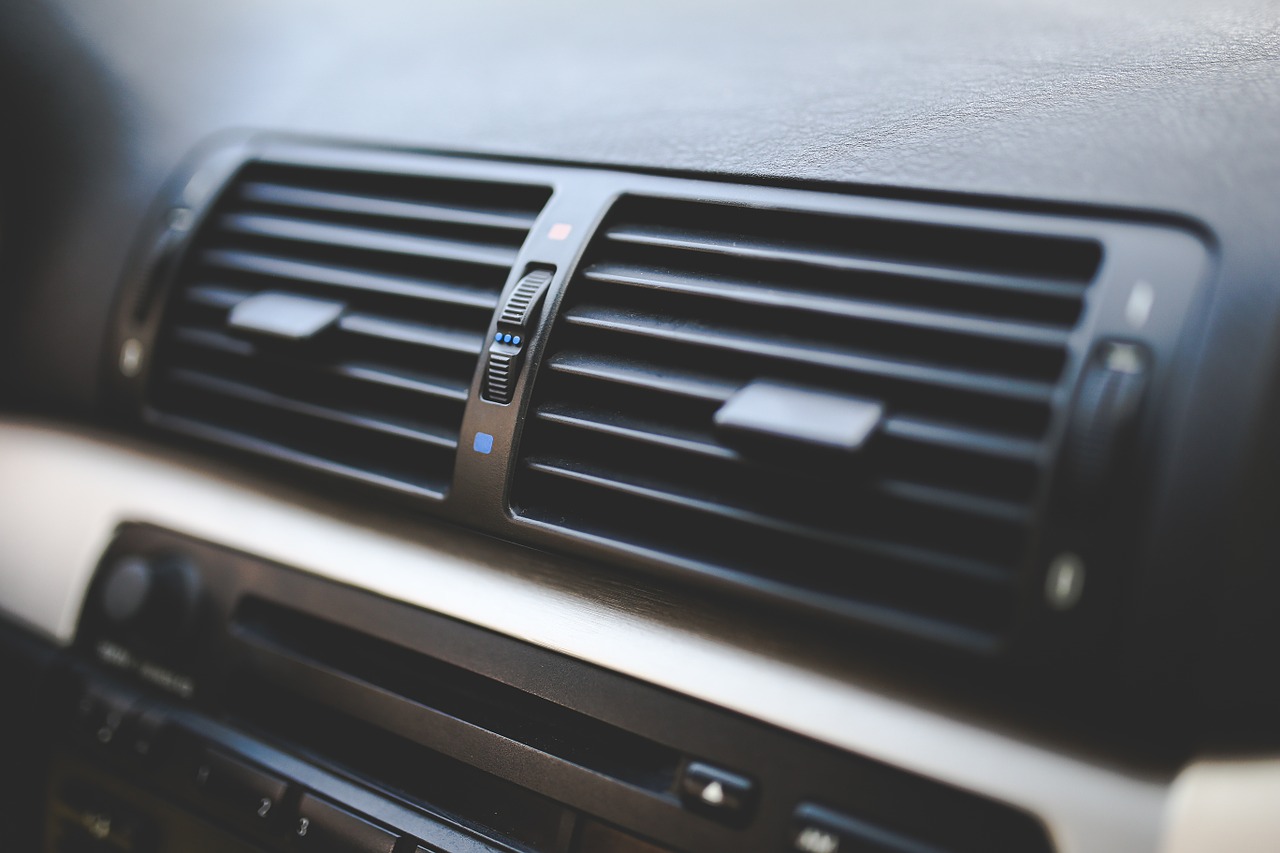In the middle of summer in California, the last thing you want is your vehicle’s air conditioning to not blow cold. Sitting in traffic without cold air coming through the vents can be a miserable experience. If your AC stopped working, you’re probably asking, what happened?
In most vehicles, the majority of the AC system is located near the engine and is exposed to corrosive materials from the road and extreme temperatures, meaning components can fail over time. At Osborn’s Automotive, we can help diagnose and repair your car’s air conditioning issues and service the system to keep you cool in the summer heat. Read on to learn more about how vehicle air conditioning works and some of the most common issues that occur.

How does air conditioning work in a car?
The air conditioning system in your vehicle changes the state of refrigerant from a liquid to a gas, and back again using temperature and pressure. Air is then blown over the refrigerant at its coldest point, lowering the air temperature before it comes out of the vents in your car.
The refrigerant used in AC systems has a much lower boiling point than water, meaning it is able to transition between liquid and gas forms within the small temperature and pressure changes that occur in the system. This allows for the easy removal of heat from the refrigerant and the air blown over it, effectively cooling the inside of your vehicle.
The air conditioning in your car is a closed system, meaning it is sealed off from the outside in order to maintain the pressures needed to function properly. When this system is breached or a component is unable to effectively move air or refrigerant, you will likely notice that you’re A/C is not blowing as cold as it should be or not blowing cold at all. The list below describes some of the more common components within a car’s air conditioning system to have problems.
1. Bad air conditioning compressor
The compressor is responsible for converting the refrigerant into a high-pressure gas. The compressor is also the main power unit in the A/C system, connected directly to your vehicles engine. If your compressor is not working properly or breaks, no cold air will come through the vents because the refrigerant is unable to cycle through the system. Sometimes, a failing compressor causes notable loud noises that are noticeable when the air conditioning is switched on.
2. Blocked or broken condenser
The A/C condenser allows the gas created by the compressor to change forms into a high-pressure liquid. The condenser sits in front of the car near the radiator and is an essential component in removing heat from the refrigerant during its journey to eventually cooling the air in your car. The condenser can become damaged while driving or blocked by leaves or other debris that prevent air from passing over it. A broken condenser will result in warm or lukewarm air blowing instead of cold. Additionally, a failed condenser can result in the A/C system over heating, emitting a burning smell through the vents when turned on.
3. Broken air conditioning fans
The fans are responsible for blowing outside air over the condenser, helping turn the gaseous refrigerant into a liquid. It is easy to check these fans yourself. On most vehicles they can be observed by popping the hood or looking through the front grille. If the fans stop working, your air conditioning will not blow cold.
4. Leaking or low A/C refrigerant
Leaking refrigerant is a common cause of poorly functioning air conditioning in cars. Leaks can occur anywhere in the system and are hard to detect. Ideally, the air conditioning system in your car remains sealed from the outside. Without a leak, the refrigerant in the system would never need to be topped off, as it does not lose its effectiveness over time.
If a leak is present, the system would not be able to build pressure as effectively, meaning warmer air coming through the vents. When a hose or other component becomes damaged and refrigerant leaks, your AC is not able to work as effectively. After the leak has been found and repaired, the air conditioning system will need to be charged with refrigerant again.
Get your car’s A/C repaired
With so many components that can cause problems, it can be difficult to diagnose the cause of a broken air conditioning yourself. The skilled technicians at Osborn’s Automotive have the experience to diagnose and repair your vehicle’s air conditioning. Give us a call, schedule an appointment online, or stop in. We look forward to seeing you!